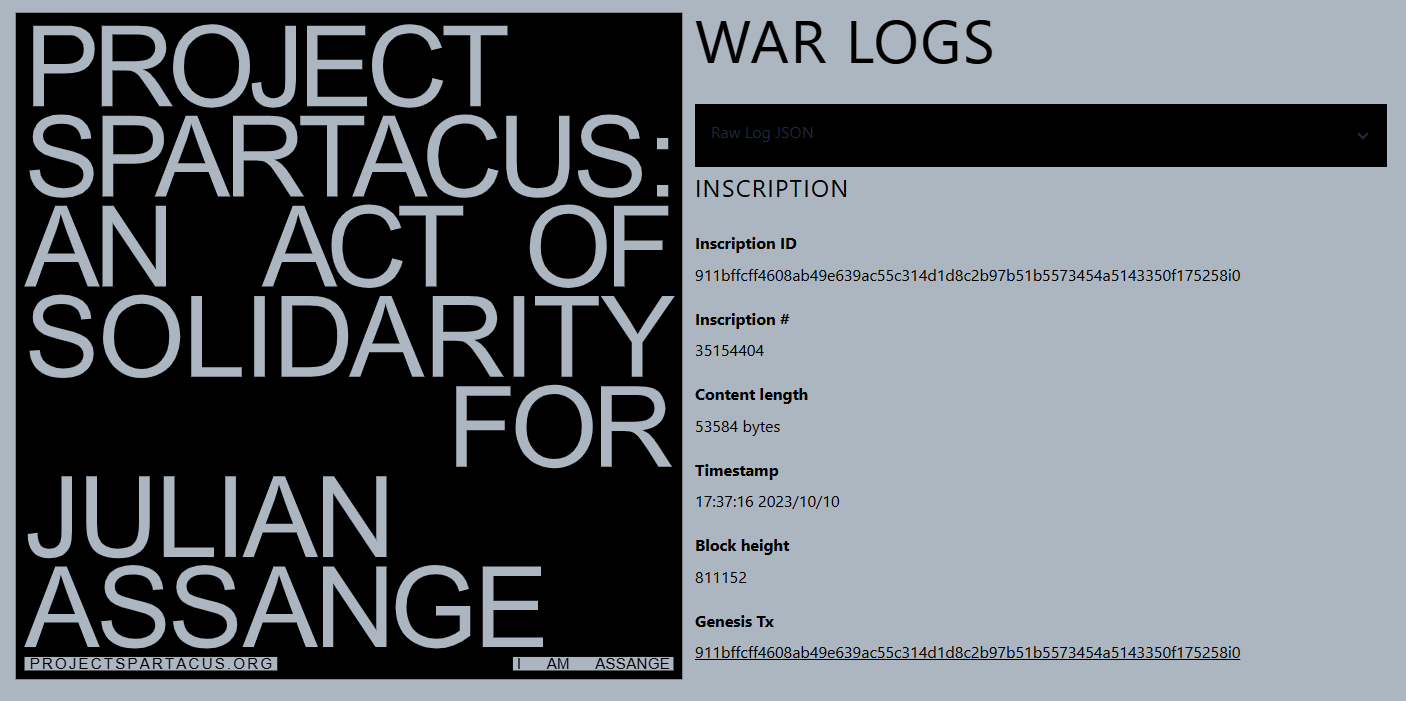WikiLeaks Uses Bitcoin Blockchain for Afghan War Logs Preservation

In 2010, as Bitcoin was just beginning to make its mark on the world, Julian Assange released the Afghan War Logs, a collection that transformed public perception of the U.S. military's actions in Afghanistan under Operation Enduring Freedom. These documents, numbering in the tens of thousands, detailed the harsh realities of war, including civilian casualties and aggressive interrogation techniques. The New York Times described this release as painting a "grim picture" of the conflict.
But despite being publicly available, there was always the threat that these logs could be censored or removed from online access, removing important parts of history that we wouldn't otherwise be able to get back or access later. To counteract this risk, Assange, alongside his supporters, has decided to leverage the immutable nature of the Bitcoin blockchain.
This initiative is part of a broader effort to ensure that the truth remains accessible no matter what happens to traditional hosting platforms like WikiLeaks.org or even the Internet Archive. Starting on December 5, 2024, all 76,911 documents from the Afghan War Logs are set to be inscribed onto the Bitcoin blockchain via a tool named OrdinalsBot. This project, accessible through ProjectSpartacus.org, allows for a free minting process, symbolizing the enduring fight for transparency and freedom of information.
Gabriel Shipton, Assange’s brother and chair of the Assange Campaign, pointed out that with the logs stored across a global network of Bitcoin nodes, they become nearly impossible to erase. "This information should last forever," he declared, highlighting the use of Ordinals as not just a preservation method but as a testament to the protocol's capabilities in safeguarding critical data.
The process of inscribing these logs onto the blockchain is monumental, given the volume of data involved. Toby Lewis, the founder of OrdinalsBot, described it as one of the most complex mints due to its scale, with each of the 76,911 files requiring individual inscription across multiple blocks. This isn't just about archiving; it's about creating an icon in the digital world, one that stands for freedom and resistance against censorship.

Bitcoin Ordinals are a method of creating digital assets on the Bitcoin blockchain by inscribing data onto individual satoshis, the smallest unit of Bitcoin. Each satoshi is given a unique serial number based on the order it was mined, and this system allows for the attachment of various types of data like text, images, or videos to these satoshis, effectively turning them into unique digital artifacts or Bitcoin NFTs. This process, known as "inscription," makes these assets immutable and verifiable due to the blockchain's inherent security. The concept was introduced in January 2023 with the Ordinals protocol, enabling the creation of non-fungible tokens directly on Bitcoin without the need for sidechains or additional tokens.
Project Spartacus isn't aimed at fundraising for Assange, who is currently seeking a full pardon. Instead, it's about using technology to bypass potential censorship and protect historical records. The only financial beneficiaries during this mint are the Bitcoin miners who secure the transactions. After the initial minting, these documents will be showcased on Lewis' new marketplace, Trio, starting December 12, showcasing OrdinalsBot's capability to manage large-scale projects.
This endeavor also ties back to Assange's history with Bitcoin. His interactions with Bitcoin's creator, Satoshi Nakamoto, are well-documented, with Assange's decision to accept Bitcoin donations for WikiLeaks noted as one of the early catalysts for Bitcoin's public recognition. However, it also led to Nakamoto's retreat from the public eye, as he felt the attention was unwanted under such contentious circumstances.
Shipton reflects on this history, noting that the support WikiLeaks received through Bitcoin donations during times of financial blockades demonstrated the cryptocurrency's potential as a tool for resistance against state control. This project not only preserves the Afghan War Logs but also serves as a reminder of Bitcoin's foundational ethos of freedom from centralized control, ensuring that Assange's legacy in this space continues to influence and inspire those who believe in the power of decentralized systems to uphold truth and transparency.

